ABOUT THIS EPISODE
In today’s episode, OWC RADiO host Cirina Catania, talks to Slovenian journalist and film critic Damijan Vinter, who gives us his take on this year’s Berlin International Film Festival (the Berlinale). Here are his must-see movies and his impressions of this year’s films in competition.
Celebrating its 70th year, the Berlin International Film Festival has once again confirmed its status as one of the world’s leading film festivals: 342 festival films, 330,000 sold tickets, and 22,000 industry professionals from 133 countries.
Damijan Vinter shares his impressions of the best feature films, including the winner of the Golden Bear, “There Is No Evil,” a drama from the Iranian director Mohammad Rasoulof centering on true stories of the people behind the scenes who carry out executions in the Islamic Republic of Iran.
Rasoulof, has had many run-ins with the Iranian government since 2010, and was banned from filmmaking. He has now been sentenced to one-year in prison due to films which the Iranian authorities found to be “propaganda against the system.” As of this writing, Rasoulof is refusing to turn himself in. An appeal is planned.
If you missed this year’s Berlinale, or just want to learn more about the films that were in competition in 2020, listen in to Damijan’s recommendations and insights.
You will find something interesting for sure!
As always, your comments and suggestions are welcome.
Write to us at OWCRADiO@catania.us or comment below.
For more information about our amazing sponsor, Other World Computing, go to MacSales.com or OWCDigital.com, where you’ll find hardware and software solutions and tutorial videos that will get you up and running in no time.
For more about our host, filmmaker, tech maven and co-founder of the Sundance Film Festival, Cirina Catania, visit cirinacatania.com.
If you enjoy our podcast, please subscribe and tell all your friends about us! We love our listeners. And, if you have ideas for segments, write to OWCRadio@catania.us. Cirina is always up for new ideas!
In This Episode
- 00:20 – Cirina introduces Damijan Vinter, a journalist and film critic from Slovenia.
- 1:15 – Damijan agrees that Sheytan Vojud Nadarad or There Is No Evil is the best film in the competition
- 5:25 – The award ceremony for the Golden Bear award touched everyone at the Berlinale Palast.
- 07:41 – Never Rarely Sometimes Always, a realistic teenage dilemma. Awarded Silver Bear Grand Jury Prize
- 09:04 – Damijan shares a funny cat scene from the film, The Woman Who Ran.
- 11:46 – Damijan enumerated his favorite film in the competition. His favorites were Volevo Nascondermi/Hidden Away and Bad Tales.
- 15:10 – Cirina shares what she loves most about the Berlin International Film Festival; People talk about the movie in terms of what country they’re from.
- 18:48 – Damijan shares how the film Gunda managed to capture a very sincere moment in life on the farm.
- 34:01 – Damijan gives his opinion about the new management running the Berlinale.
- 35:48 – Damijan wished for a different approach on the opening keynote for the Panorama section.
Transcript
You’ve got to give me all of the inside scoop on the festival. I was really interested because you said that, for the first time in a long time this year, you were almost 100% in agreement with the jury.
Yeah.
So what was that all about?
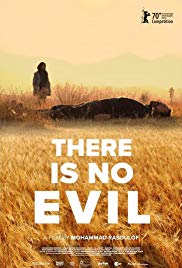
First of all, because I saw the last competition movie. It was this Iranian film, Sheytan Vojud Nadarad to which is like There is no Evil. I just saw it yesterday, and it was the best and most beautiful film ever in the competition. And you know the feeling when you see the best movie at the end of all this traveling? I was so touched that I skipped another screening, which I have tickets for. That evening, I realized that it was the film they gave the Golden Bear to. It was the start of my happiness or satisfaction, I should say.
In just a few words, it deals with serious and harsh topics with its four different stories, dealing with your individual responsibility with execution, the death penalty in Iran. It may sound harsh, but it was made beautifully, poetically and, on the other hand, with love, empathy, and sometimes sadness. So yeah, it really strikes me the most in all that I saw—the most beautiful film on the screen, I would say.
Wow. It was hard being away from it this year because I haven’t seen any of the movies. Normally, this is a very vibrant conversation that you and I can have, but there’s a big story behind this movie too because isn’t he facing a prison sentence?
Yes. I mean, I’m not here to tell the terrible story of my partners, the Iranian directors, creators who tried to bring another picture of Iran which of course is not compatible with the authorities there. So this director Mohammad Rasoulof after he’s winning in 2017, they took his passport, and he sent us a story one or two years in prison that he could not come to Berlinale, the award ceremony. It was very touching not because of the standing ovation but because he was not there, and his daughter accepted the award with the producers on behalf of his name and also because of all the speech and the co-producer who gave the speech. Above all, we just want to show with that movie that Iran is not like this terrifying country which the media tries to present, but in Iran, some peaceful people just wish to live. They really want to share love and compassion and everything with the other, so we are not like this kind of terrorist country or whatever they’re trying to be presented. So it was very touching. It was one of the most touching moments of the ceremony, which by the way, there was this very boring new host Samuel Finz or something oh my gosh.
That was interesting because they just stood there with papers in their hands reading like it was a school play. That was very strange. I was watching it, but didn’t his daughter hold up a phone and show him on the phone during the awards?
That’s probably because I was not in there, but your knowledge is watching for the transmission. So I cannot confirm that.
Yeah, apparently she held up her phone, and he said hello from the phone, which I thought was interesting.
The whole road of Berlinale Palast, the road where we usually stay or something like that, the whole road with actors and actresses some of them were crying even. It was really very touching. In their faces and in their eyes, you realize how much it means to them and probably how much they wish to make that movie and how much they stand behind it. And they want to really work to know this kind of Iranian people and all mankind, Mediterranean people, because no matter that it happened in Iran in dealing with death penalty, which is still going on in Iran, but it’s dealing with the most global topic, or universal topics will say. So it’s just the individual responsibility if the society tells you, you have to do something which you believe inside you that is wrong, no matter because of its religious belief or your personal beliefs or your personal experience, so what will you do? Will you obey? Or will you just stick to your belief? And of course, there will be some consequences for you, your life, and your loved ones. And that’s it.
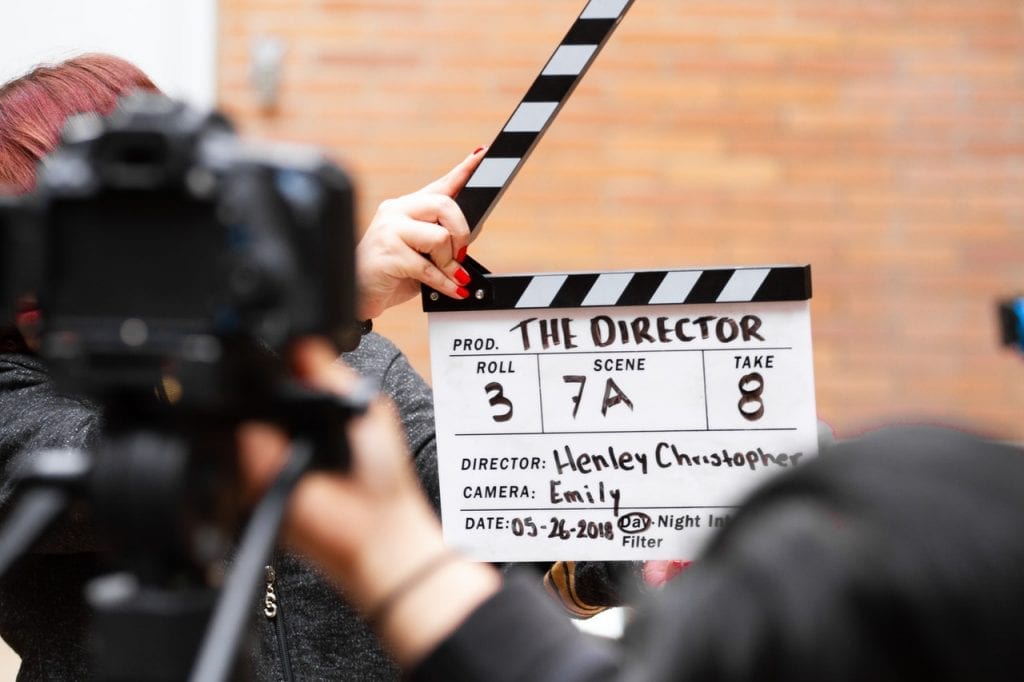
There was a quote that I heard from the producer Kaveh Farnam. It said, “The story reminds us that there are no walls in this world that can stop the power of imagination, the power of ideas, belief and love.” That resonated obviously with not just you and me but with all the creative people in the audience, people who need to tell a story, people who need to talk about the resilience of the human spirit. I think that’s what this movie seems to be about. I can hardly wait to see it when you say you really love it. It means I’ve got to go see it.
But for real it is the strongest movie of the festival in my opinion.
Unbelievable. What were some of the other films? Did you see Never Rarely Sometimes Always?
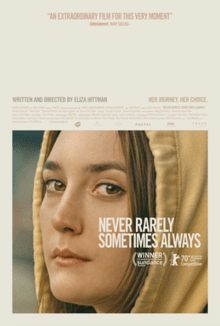
Yes, of course. I’ve managed to see all the movies in competition, which means all eighteen were in competition and it touched me. This intimate atmosphere, especially about this teenage dilemma because it goes into you. Not with this kind of a box surface like sometimes, you have to be cliché or have to be like just feelings on the first touch or first hand or how it was set. But it touched me. I have to admit it’s a feminine topic, and also it was made obvious coming in having a new approach, which is, of course, an attribute for the plot in that case. My kinds of movies are more poetic, but this is kind of a more realistic movie, but I have to accept that it works perfectly. Therefore the Silver Bear Grand Jury Prize is in which I agree with that for all these assessments.
And then what did you think of The Woman Who Ran?
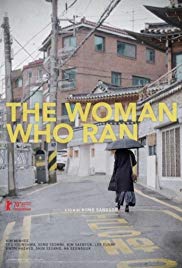
Oh, The Woman Who Ran is another typical let’s say a theatric a little pretend to sound wrong, but in a movie with a very slow pace and the camera is very static and you’re just listening to female characters talking. I think there were just two male characters, maybe just one anyway, but it is this quality about these kinds of movies because it forces you to, to get out of your frame, especially talking to me as the Western people Western man, just to take time to listen.
And what always surprised me in that movie was this different kind or different style of conversation. Even the characters are trying to argue about something, or they try to achieve the main goal about different topics, and they have different opinions. They’re always smiling no matter what. It will be a “No no, I think that” “no, I think you’re wrong,” but it will not tell you directly, and maybe that’s why you’ll love it.
There is this little cat that blossomed during the movie in the opening scene. It was so sincerely made because there is one conversation about the neighbors who came into the female couple and asked them to stop feeding the cat, which was not theirs. So they think it was a stray cat, but they hid it. And he strongly tried to persuade them that it looks good, but his wife was allergic to cats and how can they do it? It’s just an animal. How can they put the animal first before his wife, who is a human? But the girls were “it’s like a child to us. So thanks. I appreciate your opinion, but we will not stop feeding the cat.” At the end of the scene, the camera focus goes to the cat and looks into the camera and just scratches herself and is there. It was so spontaneous. I strongly believe that it was not even planned; the director just seized the moment.
Well, they say animals and babies upstage every scene.
Yes, yes. So it’s hard to compete with them, but it’s true.
What were some of your other favorite movies, and were there any real stinkers in the bunch? So let’s start with your favorite ones.
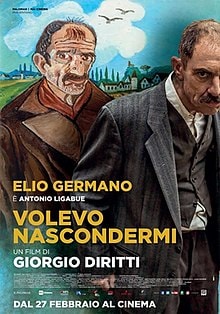
Yes, above with this Iranian one the next which I like, I will mention three of them I like Both of Italian movies personally it was like. Both also won the Silver Bears. One was from Elio Germano for Volevo Nascondermi/Hidden Away. So like a biography, a story about this artist…
Ligabue?
Ligabue yes. The transformation of this young actor, which is kind of cute in real life, and we also saw him in another Italian movie which I also like. His work was amazing. So he deserves above all the male characters that shared this award. And I like this movie because he portrayed this guy who is outcast and who kind of looked like a handicapped but how he fits into society, how he found his own voice despite this conflict with society. And they also show us the brilliance of his work because he was a painter, a sculptor. And also the human surrounded him during his life, they have empathy, they have love, and because of that, he could prosper and became one of the famous modern artists of his time. And another movie was also Italian, and Elio Germano plays a sporty groom, but it was a shocking story, and he was awarded a Silver Bear for original screenplay. So the story is really about alienation between children and parents. Stories from suburbs- during the movie, there’s always this suspense atmosphere. It also leads you to some wrong conclusions about the characters, the development of the event, and everything. And it’s resonated highly, of course, tragically also at the final act. So yeah, it was really a lot to process.
Uh-oh, that was a movie called Bad Tales, right?
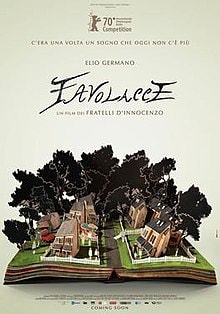
Yeah. And then also I have to admit that all the German movies, three of them in the competition this year were quite good. I personally like the new adaptation of Berlin Alexanderplatz. I agree with Silver Bears for Paula Beer as the best actress for her kind of real fantasy, a fairy tale about these kinds of mythical feminine creatures connected with the water. I’d like to mention another one, a totally different movie. It was a Taiwanese movie.
It’s interesting. I want to tell the people who will be listening that while you’re looking for that, what I actually love about Berlin, as opposed to many of the film festivals around the world, a lot of the film festivals around the world center around the actors who are in the movies and actors are obviously incredibly important. But in Berlin, much of it centers around the directors. But everyone talks about the movies in terms of what country they’re from because it’s truly an international festival. So you have Taiwan, Italy, Germany, France, Sweden, Japan, and many co-productions, which is one of the things that I love about Berlinale. You feel like these people are coming from all over the world, showing these works that they’ve spent their lives developing and then shooting and then in post-production and these stories that come out because it means something to them and I’ve never felt more a part of a stronger community than when I’m sitting in those theatres next to you and all my friends watching these amazing films. It’s such an affirmation of how important this is to all of us and how much we love it. We just love it.
Yeah, they have to agree with that, especially because, as you said, you get this wide perspective of the world you probably do not know based on your own experience. Just to confirm that I would like to mention another type, which was the Taiwanese movie Days. It’s a two-hour long movie without any word. So it just shows your loneliness which is presented, but it may be something harsh to bury and for normal viewers probably kind of hard stuff. But it was also worth seeing that we are forming this wide variety of movies this year. Maybe it’s okay to mention a lot of what they liked about the organization because before as you remember, there were like the main section competition. Sometimes in that section, there were some movies that were out of the competition.
Now they just clear it out. So now you have a competition in a competition. There were just 18 movies, which were all for the runs for the bears. And then all these movies, which were before in competition out of competition, were put in Berlinale Special. So it’s like a section which was also started years ago like Berlinale Camera.
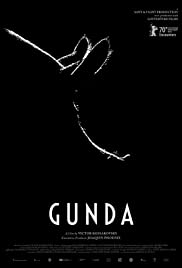
You can find in that category My Salinger Year, Onward, Minamata, and all these titles. And in addition to that, they established a new section which is Encounters. It’s like they feature the films there who are different. Films who are trying to find, they quote, was this section is meant to be for the film’s Queen carriage independent film production and some new ways new film approach or something like that, mentioning that there was also this film Malmkrog that was awarded some independent awards for Cristi Puiu. I saw, for example, the film called Gunda, which was also a black and white story without any words. It’s about a family of pigs on the farm, and I just like it because it was a story about the mama pig that gave birth to a lot of little pigs and how they grew up. There were some just maybe short sequences to show also the cows and the chickens, but the main topic was just their everyday life on the farm, and they managed to capture with a camera, such a sincere moment and everything. Also, by the end, it’s not judgmental. Because what bothers me nowadays is that all the experimental or new and young directors try to shock and provoke with such things which I don’t agree is always necessary. But for example, it will put you just two examples. In this movie Gunda, in the end, just show that this tractor and they took all these young piglets away. They just drove them away. You don’t see what’s happening to them, it’s okay for everyone, but instead of showing it, some director will decide to show how they end in the butchery or something.
Right.
But now we just see the mama pig wandering and running around, trying to know what it’s happening. And another movie which I was really kind of pissed off in competition, was a Soviet movie DAU Natasha, which also won the Silver Bear for artistic contribution for the camera. But for me, it was that kind of experiment that didn’t work because it was, maybe I’m now too harsh, but it was like a two-hour scene of arguing or humiliating, with no reason explicit sex scenes. Okay, the topic is like how people should behave in one of these ex-Soviet experiments, they put the scientist in an isolated community. But then after that, you realize what does it contribute to more empathy?

Give yourself time to discover you. Know what’s inside you.
I strongly believe that if we want to try to quake the system, quake in diversity, we just try to develop our sense to accept the others, no matter how different they are. But that kind of movie just gives you fear, judgmental, tragedies, and sharks. After that, you’re not capable of embracing the people who are in front of you, even if it’s different.
There’s no redeeming value in it.
Yeah. So, therefore, personally, as I said, I agree that the camera work was definitely okay. And it deserved a reward but basically this movie, Oh my gosh, it was one of the most irritating experiences over the years of Berlinale.
It sounds like the whole festival started out on a very emotional note because it was the day after the tragedy, the shootings in Hanau, and one minute of silence in memory of all of the people who had passed during that shooting. And then 340 films were shown this year, right? Am I correct?
Correct.
So it’s really hard as a journalist to navigate the Berlinale, and we’ve talked about this over the years. I like to watch films that compete. One of the sections that I’ve never had a chance to really visit was the 14 and under. Did you see any of those films? You probably didn’t have time either this year, did you?
Unfortunately not. Previous years I just maybe try to catch one per year, but this year I didn’t have time to do that, and I’m not okay with that. But it’s sad in that quantity of films, and in so many different sections, and also the scheduling conflicts. If you want to see them in competition movies, it’s hard to find the next screening for the movie in other sections that you would like to see. No matter what, I try to see at least 10. Other movies like I said in encounters and in panorama but unfortunately none in this younger generation films, which also deserves to be seen.
Yeah, it’s a shame that they don’t have a way around the world for us to watch some of the movies that we missed. But I know I walked away from the Berlinale on most years and I’ve seen movies in the ten days in previous years. Was it ten days this year? I watched 30 movies in those ten days, that’s an average of three movies a day. That’s a lot of movies going and then trying to catch running into the press conferences so that we get a seat before it fills up. I love that part of it, though. Were there any interviews with any of the behind the scenes people that stand out for you?
No, because also this year, I did not cover so much for printed media because the situation is like it is, and I just focused on watching the movies.
That’s nice.
So I also didn’t attend many press conferences. I didn’t know most of the interviews. But as you probably remember, we saw Jeremy Irons, Jury President with his hat and his authority persona. It is like this moment, which stays with you. Maybe the only thing I’m starting to miss is that through the years was when we met on the Berlinale, also that time when screenings that look like queuing and waiting in the theatre before the film starts were a little more vibrant. And I blame it on technology because now every third person just stares at their mobiles and doing some other things, or communicating with a universal unknown bunch of people. I’m not saying it’s not good, or it’s not right because who am I to judge? But for me, it’s the first step against alienation to each other. And if we don’t take time to communicate with people who are beside us, I strongly fear that we will lose the sense of…
Community?
And we are putting danger in our existence in society.
Some of my favorite times are waiting in those lines. I just talked to everybody. I’ve met the most amazing people, just turning around and saying hello and starting a conversation. It’s kind of like when you go to the Olympics.
Yeah, me too.
Those people from all over the world, right? This is like the Olympics of film. And I do hope that the Berlinale never really changes this approach that they have to the films because it’s a very special time every year for us to do this. So there’s a couple of things that come to mind. Every year we sit there and watch these movies, and we go, oh, oh, oh, and then they just seem to get better and better. And by the end, we have ones like the one that won the Golden Bear this year. There is no Evil. Do you remember the Trojan horse? What was the one you talked about? Some of the films this year didn’t have dialogue, right? This one was a father and son waiting for the end of the world. And, and they were in this cabin, and they were eating a potato.
Yeah, it’s Béla Tarr, The Turin Horse
Yes.
Yeah, it stays in my memory and is one of the greatest masterpieces of modern cinematic art. But I recalled that after forty minutes, I wanted to leave because I was so tired. After all, it was my fourth movie that day or something. But then I said, Okay, now just bear with it, just stick to it and start to reveal such a beauty inside this silence.
And you know, Béla Tarr said that was going to be his last film. I don’t know if it really was. But remember looking over at each other and going, “Oh my gosh, should we leave?” Then like you said, we decided to stick it out. And I think for me, I can’t get that film out of my head because what he did so incredibly as a director was create the setting for us so that we were actually living the sound of the wind then you could feel the cold, and you could almost taste that potato that they would cook for dinner every night. And just something simple, like that very little dialogue it was an amazing film. I’m dying to see the ones you were talking about, that didn’t have any dialogue. I’m curious about it.
I strongly believe that these kinds of movies are necessary, especially nowadays. Because as you said, it allows you to create your own artistic world, it resonates inside you. And I think that we don’t have to lose that. But it has to be some personal involvement as you mentioned at the beginning, we were just all in this temptation to leave because why? Because they demand some effort from our side. And we were tired of watching all these movies. But when you stick with it, it’s worth seeing, and you discover things you will never discover otherwise. And I think it’s also the perfect example, which can also teach us for a normal life that we have to just put some effort into the relationship, in the things we’d like to achieve, and the things we love, with people we love. Because otherwise, if we are like our technology nowadays, trying to convince us if we can accept it and get everything whenever we want it and whatever we want.
It just doesn’t feel right so much because we don’t appreciate it and stay empty-handed. And maybe there’s some fear inside me that the people living like that they’re just shelves, empty shelves, which are every day filled with all these media, all this information you find on the internet, all these things. But where are they themselves? How will they decide or discover? What do they really want? What do they really long for? What do they really want to achieve?
Because if you don’t give time to discover yourself, there’s no you, and that’s what I believe in. If I’m returning with the winner film, then we came to the point that we are just like the quote says. There are two groups of people. One is more like the chosen one, and the other one is like a crowd who just blindly obeys everything with these in fashion with the trend what with the media tells you to do or not to be or to be afraid. Like for example, this coronavirus and everything. And I was also dealing with that, coming to the Berlinale festival. Some of my colleagues said, “No, but how can you dare to go there?” I said, “Come on; it’s just the lives.” Also, based on my experience and working in the media, I always say it out loud. Life is much more beautiful than it’s presented when you just look at the television and look at the Internet.
Absolutely.
On the film’s on Berlinale, just to confirm my theory because they also show me some parts that don’t change. Cirina, most of the films in competition are dealing with serious and harsh topics, but at least from time to time you find some beauty, some positive, some optimism inside it. And maybe this film, There is No Evil when it was finished, and I was still sitting in the theater after the credits run, I was just telling myself, okay, Even if it was the only movie I’ve seen on this year’s Berlinale it was right to come here.
Right? Wow. Oh my goodness.
Yeah. And I’m really satisfied with that. Not that I don’t accept so much about life, but I’m trying to appreciate these little things. And this movie was kind of this thing because I said that even if I hadn’t seen all of the film before, it was almost 30. Also, I saw this year. I’m not saying that I regret it. So all the other movies, even if I didn’t see them, would be enough for me, and they gave me so much. That’s also the reason why I’m still coming to Berlinale after 25 years or something. After all the complaints, we had from the past years, about the competition and also this year after this Soviet movie DAU Natasha I was really pissed off and now what? But it is the life you have to face.
There was some controversy in the local community because this is the first year with a new group of people running the festival. So I think there was some trepidation about whether or not it would be as political as it has been or too political or are they gonna select the right movies, but it sounds like if what you’re saying is true, they did a really good job.
Yeah, for me it was like that, but maybe because I think that this year maybe this new leadership or management which they say is more focused on the film itself than their political issues or social issues. But as I repeat myself, the winning movie is the perfect example. How can you open the political statement and also these very serious and very important issues about today’s society? You can open it with an artistic dimension with an artistic approach not just with some not so strong political statement like it is. I believe that this new management will go in the right direction. But okay, let’s see for another year because this year’s competition was definitely better overall than the last three years.

I’m not telling you that there were no good movies last year. I liked Synonyms and System Crasher and all these great movies. As a whole, it was like they’re more focused on the program on the films itself. But maybe just another topic because you mentioned when the opening keynote panorama was presented, the young curator who is now also, he was the co-creator of previous years, he also asked for silence for Hanau victims and everything. And then he tried to show stories about the individuals who don’t fit into society, who have to fight for their rights and everything. And okay, I’m okay. Basically, I’m okay with that. But I’m kind of tired of that because what crossed my mind was, okay. Why does it have to be just this egoistic approach of individuals, why can’t we just try to show the things which can unite us? Why does this have to be just about one person only and who also has to struggle to fit into society? Why don’t we show that it’s not just to fight and struggle to live in society? We can show that we can live with each other no matter how different we are. That was my second thought when listening to his opening speeches.
And we’ve talked about this before, I agree with you. I really believe that our hearts are all the same color. We have universal humanity that resonates when you just take time to get to know each other and when you can look at the good in people, but now you’re making me really excited for next year, so I guess we’re gonna have to wait till next year to see each other again. Right?
Yeah, I really hope to see you again and don’t forget that the Berlinale time is the same as in previous years because this year it was two weeks late, but now it will be the beginning of February. So just get with your activities.
So you’re headed back to Slovenia now? Where are you going now?
Yeah, I’m leaving the hotel in two hours. Our flight is in the afternoon we’ll be back home, and by Monday we start work again like the same procedures that we do.
Well, this is Cirina Catania, with OWC Radio. I’ve been speaking with Damijan Vinter, a dear friend and fellow journalist I see at the Berlinale Film Festival and many of our other journalist friends every year. Damijan, thank you for taking the time. I know you must be exhausted after a good solid ten days, right? Watching all these movies, but I really appreciate it, and it’s been nice talking to you. Thanks for the update. And everyone you know what I tell you every week, get up off your chair, go do something wonderful today. Thanks for being with us, Damijan.
Thank you for the enlightenment. Of course, I wish you a lot of good things to happen in all of our lives. Yeah.
Awesome.
Important Links
- Sheytan Vojud Nadarad
- There is no Evil
- Golden Bear
- Mohammad Rasoulof
- Berlinale Palast
- Kaveh Farnam
- Never Rarely Sometimes Always
- Silver Bear Grand Jury Prize
- The Woman Who Ran
- Elio Germano
- Volevo Nascondermi/Hidden Away
- Ligabue
- Bad Tales
- Berlin Alexanderplatz.
- Paula Beer
- Days
- My Salinger Year
- Onward
- Minamata
- Malmkrog
- Cristi Puiu
- Gunda
- DAU Natasha
- shootings in Hanau
- Jeremy Irons
- Béla Tarr
- The Turin Horse
- Synonyms
- System Crasher
Checklist
- Put your heart and soul into your passion. Keep doing the things you love and everything else will follow.
- Believe in the power of imagination. You are capable of turning your thoughts into reality.
- Pursue a creative life if that is what you truly want to do. Express yourself through storytelling in many ways. It can be through film, music, writing, or directing.
- Highlight global topics to shed more light on things that are not widely talked about. Spreading awareness on a cause you support can end up getting a lot of help and attention along the way.
- Be sincere and authentic when telling your story. People can sense your sincerity. Make sure your intentions are honest and they will show on screen.
- Cultivate diversity. Be inclusive in your craft. Welcome and collaborate with people from different cultures and upbringings. You can discover more in life this way.
- Let your work become known. Spread the word. Submit work to critics or awarding bodies for some high-caliber recognition.
- Get more involved in the art of film. Support all types of films, not just the ones created in Hollywood.
- Keep developing your craft. Just continue doing what you love, improving your work, and innovating your skills.
- Check out Berlinale’s website for more information about their event.
ABOUT OWC
If you work in tech and haven’t heard about Other World Computing (OWC), you’ve may have had your head in the sand. OWC, under the leadership of Larry O’Connor since he was 15 years old, has expanded to all corners of the world and works every day to create hardware that makes the lives of creatives and business-oriented companies faster, more efficient and more stable. Go to OWCDigital.com for more information.
Here’s the company’s official mission statement:
At OWC, we’re committed to constant innovation, exemplary customer service, and American design.
For more than 25 Years, OWC has had a simple goal. To create innovative DIY solutions to give you the most from your technology.
Beginning with 100% compatible memory upgrades, reliably exceeding Apple’s maximum RAM specs, OWC’s product offering has grown to encompass the entire spectrum of upgrade and expansion possibilities, all with a focus on easy, DIY setup and installation.
Our dedication to excellence and sustainable innovation extends beyond our day-to-day business and into the community. We strive for zero waste, both environmentally and strategically. Our outlook is to the long term, and in everything we do, we look for simplicity in action and sustainability in practice.
For us, it’s as much about building exceptional relationships, as it is about building exceptional products.